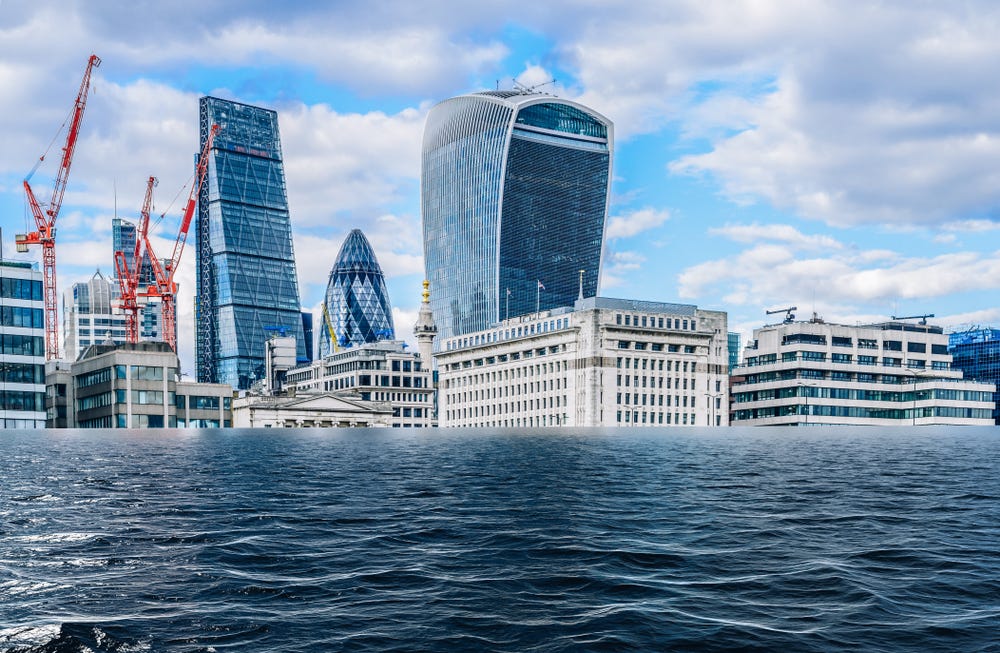Thames Water: drowning in debt? Have some more
We are witnessing the City’s finest doing what they do best: protecting their interests against those of the customer.
So what do you offer an alcoholic to help him get through another day? Why, another drink, of course. It seems barely credible that the investors who hold debt in Thames Water can seriously think that another loan is the way forward for a business teetering on bankruptcy, but they do.
In fact, there are two competing offers of new money, one from the higher-rated “A” bond holders and another from the subordinated “ B” holders. Of course, neither is offering a drop of the hard stuff out of kindness, but out of pure self-interest, and the best that can be said is that there is a semblance of competition.
So how hard is the hooch on offer? Both are suggesting £3bn to get Thames round the next corner. The “A”s want a coupon of 9.75 per cent, and a discount to face value, so the debt would not only rank above everything else but after fees would cost nearly 12 per cent. The “B” offer is a cut-price bargain at 8 per cent, which they calculate would save Thames a curiously precise £643m over 12 months.
So, dear alcoholic, would you prefer to be poisoned with bootleg hooch or railroad gin? The answer, in a sane world, is neither. As both camps know, more debt is the last thing that Thames needs. The business is already drowning in £19bn of it. Putting another £3bn on top is essentially risk-free to the lenders, while the near-usurious interest rates betray a sense of humour, if nothing else.
Thames needs a debt-for-equity swap, forcing a scalping on those lenders foolish enough to advance the money and ignore a decade of balance sheet warning signs. After recapitalisation, New Thames will be an attractive prospect to lenders at rates far below those being put forward now. The new energy secretary, Steve Reed, is on the case. He has appointed a commission (under Sir Jon Cunliffe) to investigate the industry, so that’s all right then. No rush, Jon.
There seems to be a general belief that the alternative here is outright nationalisation. All the bondholders would love that, since the government would be obliged to repay their debt at par. Even some form of special receivership is unlikely to force losses on the bondholders who were foolish enough to lend to Thames when it was already clear to many of us that the debt was unsustainable.
The longer this saga drags on, the more likely it is that the taxpayer will end up paying for the lenders’ folly, either with a bailout or with an increase in consumer bills to make our eyes water. The regulator, Ofwat, could try and resist Thames’ demands on prices, but the last time the water companies challenged the ruling it was overruled by the Competition Commission. Another defeat like that would probably spell the end of Ofwat.
We are witnessing the City’s finest at what they do best, protecting their interests against those of the customer. If Mr Reed and the Cunliffe commission allow them to get away with this, the captive consumer will surely be driven to drink.




